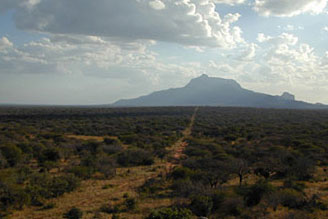A Reduced Emissions from Deforestation and Forest Degradation (REDD) project in Kenya has become the first in Africa to win GOLD level validation under the Climate Community and Biodiversity (CCB) Alliance’s REDD Standard, a certification program to ensure that communities and biodiversity benefit from such projects.
The Kasigau Corridor REDD Project aims to reduce carbon dioxide emissions by 3.5 million tons over its 20-year lifetime, generating carbon credits that may receive a premium relative to other credits due to the CCB certification. The project is run by Wildlife Works in partnership with local communities and the Kenya Forest Service (KFS).
“This is a milestone in the progress of REDD towards achieving legitimacy in the global carbon marketplace, and sets a positive example for those millions of Africans who have the potential to gain financial reward from REDD to help them move forward with sustainable development in the face of massive and growing pressure to their livelihoods caused by climate change,” said Mike Korchinsky, Wildlife Works’ Founder and President, in a statement. “We believe this demonstrates clearly that REDD is ready for prime time in Africa.”
 Courtesy of Wildlife Works |
The first phase of the project covers 30,000 hectares of forest and savanna that bridge Kenya’s largest protected areas — Tsavo East and Tsavo West. The area had previously been under threat from overgrazing, poaching and deforestation.
The project is funding construction of new schools, free health programs, and organic farming and agroforestry initiatives for local communities.
Kenya was one of 14 countries to receive funds in the first round of the World Bank’s Forest Carbon Partnership Facility, a scheme to kick-start REDD projects in developing nations. REDD is widely seen as an attractive way to reducing greenhouse gas emissions while simultaneously conserving forests and sustaining rural livelihoods. Globally deforestation and degradation accounts for nearly one-sixth of anthropogenic greenhouse gas emissions — more than all the world’s cars, trucks, ships, and airplanes combined.